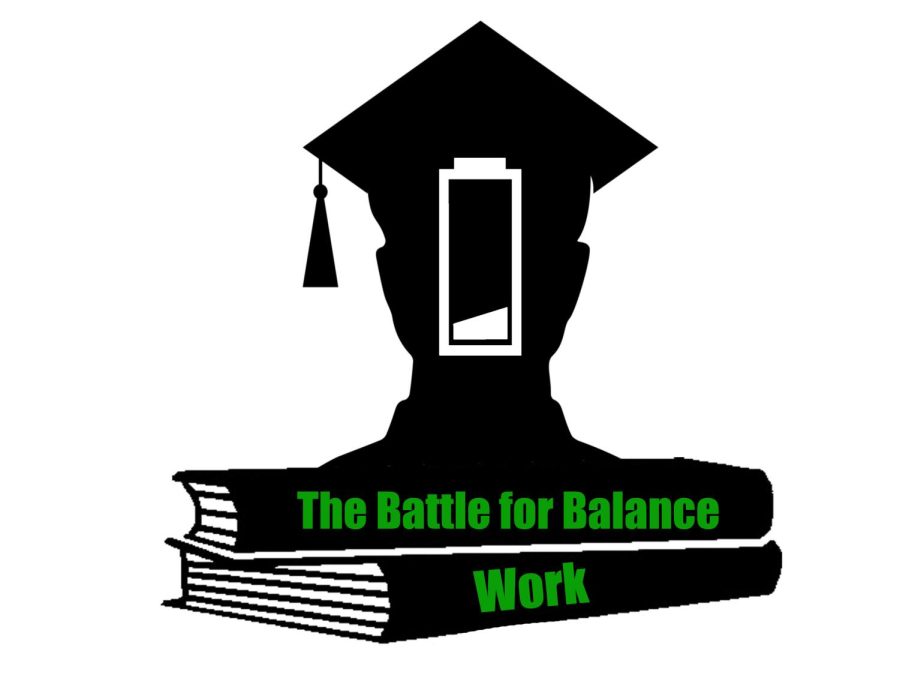Finding a balance: Work and school
Kylie Wilcher is in her third year, working on her bachelor’s degree in health information management. She has 16 credit hours while working over 60 hours a week at her current place of work.
“ I was hired to be part-time but ever since mid-August I have been working full-time hours,” Wilcher said. “My last paycheck was 97 hours with overtime. It has affected my mental health in so many ways.”
One way it has affected her has been the late nights and early mornings of work that does not allow for a proper sleep schedule. Wilcher said another way it affects her is the hold it has on her social life. She has no time for homework on the days she works. The days that she is off, she tries to have time with her friends but is tired and has homework to catch up on.
Elaine Davies, a former SWOSU student adviser and a professor with a Ph.D. in communication, has had much experience with students who struggle with this lifestyle. She gives tips to students learning to deal with the stress of life, work and being a full-time student.
One tip Davies offers is to let your professors get to know you. At the beginning of the semester, consider setting up a Zoom call, a face-to-face meeting or just going in during office hours.
“Faculty are much more willing to give you extensions if they know who you are and what your situation is,” Davies said.
Students who are working full time may have various situations come to light, but if their professor is aware of this, they may consider lending a helping hand.
“When teachers make an intentional effort to get to know each of their students, it can foster a sense of belonging and connection to school, which can then build a foundation for academic success,” said Vicki Nishioka, a senior researcher at Northwest Education.
This means a student has a higher rate of succeeding when knowing their professor because of the comfortability within the classroom based on the student-teacher relationship. This idea was mentioned by Davies and is supported by many other faculty and administration.
Another way to help yourself is by planning ahead. Davies said: “Look at your syllabus for key due dates and exams. Put these dates in your phone and set alerts for a week and a few days prior to due dates. This gives you time to prepare and ask for help if you need it.”
Preparing ahead of time will lighten the stress of having to do all homework on one day as well. If a student has a five-page paper due in a week, try doing a page a day. This is a way to do small sessions but to still get it done without knocking out all five pages at once. This could help students with the long nights of assignments if they were to work ahead.
Another word of advice from Davies is a tool for future success. “If you can get a job in the area where you want to work after graduation, take it. Even if it doesn’t pay as well, the experience will be attractive to future employers. For example, if you want to go into social work after graduation, look at working at Red Rock.”
This is a way students can take their future into their own hands. According to U.S. Statistics and Data, 51% of undergraduates drop out due to lack of money. That is why jobs are vital to many of these students. With Davies’ advice, they might be able to have a reason to continue when working for a job they see themselves in in the future.
When doing this, they are getting paid and working in a field that is rich in experience to prepare them for their career. Students strive to see the end goal of their years of hard work.
Downtime for students is one of the most important things when discussing success. Overextending yourself is a sure way to stress yourself out and affect your mental health by halting your learning.
Steven Mintz, an Inside Higher Education member, said: “Overcommitment, in turn, places great strains on students’ mental health and physical well-being. Anxiety, depression, stress and fatigue are symptoms of overcommitment.”
This is why making sure that students are getting time to relax and take care of themselves is important.
Southwestern Oklahoma State University provides students with resources when in the midst of this struggle. There is free counseling and many campus events that allow for socializing and just blowing off steam.
Another way for students to not spread themselves too thin is by setting boundaries. In a small community with many local job opportunities, students must speak up for themselves to employers.
Wilcher shares how she dealt with this: “I really buckled down and talked to my boss about getting less hours or trying a different schedule. The first step in making a change is giving yourself downtime.”
Students can still work, have a social life and succeed in school. To do this they must get to know their faculty and professors, plan ahead, and set boundaries. These are just a few ways students can make a difference for their education while still being employed.







